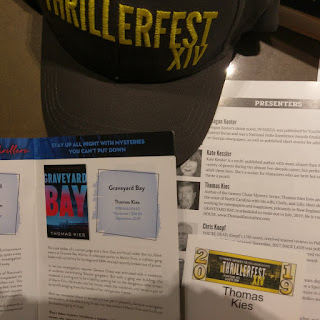For over fifteen years, I have been with the same critiquing group, the Ladies Killing Circle, through most of the Inspector Green series and all the Amanda Doucette books. We are now very close friends but every now and then we put on our professional critiquing hats and dig into a manuscript in search of improvements, big and small. Each woman captures different concerns, and together their advice is invaluable. I never submit a book to the publisher without running it by these excellent, eagle-eyed women.
In those fifteen years, we have had regular, three-to four day writers' retreats to inspire us and help us focus on our latest work. These used to be twice a year but are now once a year during the summer cottage season. This year the retreat is at my cottage. We talk about the books we are reading and note those we want to add to our TBR pile, we talk about the trials of the book business, we talk about the joys and horrors of promotion, and we work on our own work.
We also take turns preparing the meals and cleaning up, which makes for easy work for all of us. Lots of laughs are shared, and wine is consumed, albeit in less quantity as we are all growing older, alas. Sharing those few days a year forges a deep, rich friendship that goes far beyond the value of the critiquing itself.
This blog is very late and will be very short, because all these things are taking priority. But here are a couple of pics of the day.
I credit this group, and the other close writer friends, with keeping me inspired, hard-working, and sane over the years. Writers' groups and retreats are the best!
In those fifteen years, we have had regular, three-to four day writers' retreats to inspire us and help us focus on our latest work. These used to be twice a year but are now once a year during the summer cottage season. This year the retreat is at my cottage. We talk about the books we are reading and note those we want to add to our TBR pile, we talk about the trials of the book business, we talk about the joys and horrors of promotion, and we work on our own work.
We also take turns preparing the meals and cleaning up, which makes for easy work for all of us. Lots of laughs are shared, and wine is consumed, albeit in less quantity as we are all growing older, alas. Sharing those few days a year forges a deep, rich friendship that goes far beyond the value of the critiquing itself.
This blog is very late and will be very short, because all these things are taking priority. But here are a couple of pics of the day.











